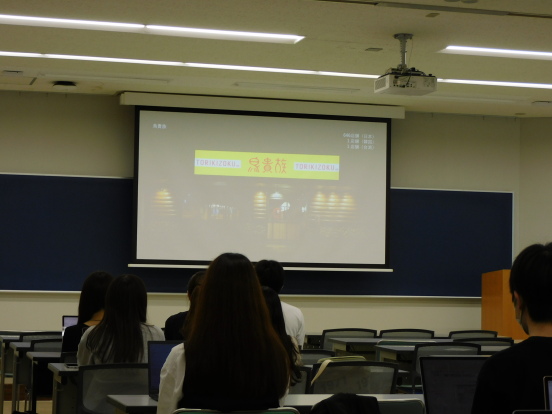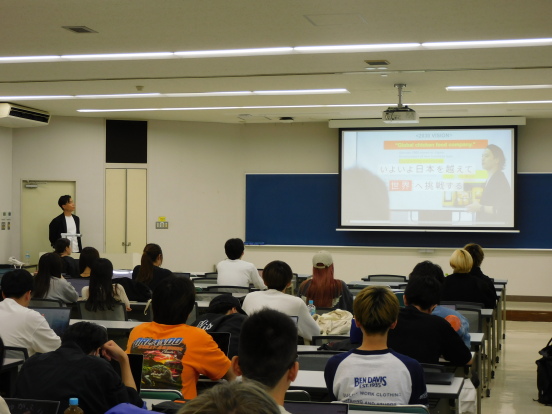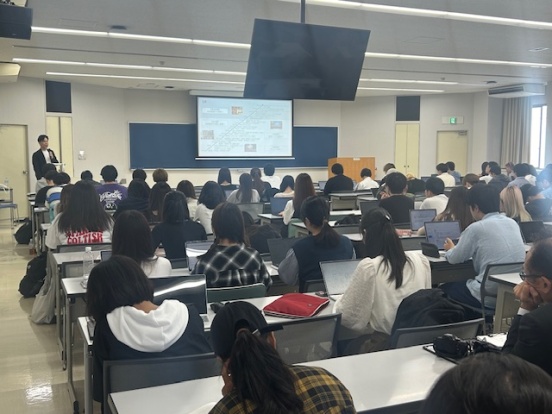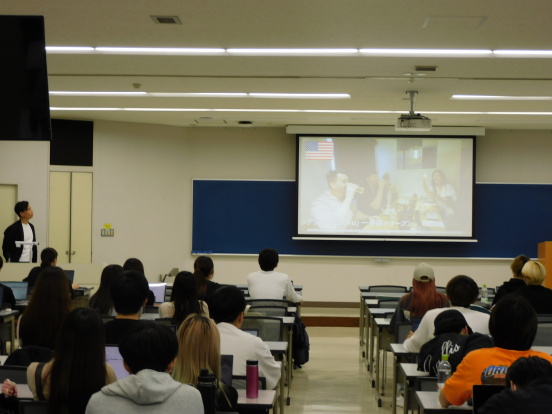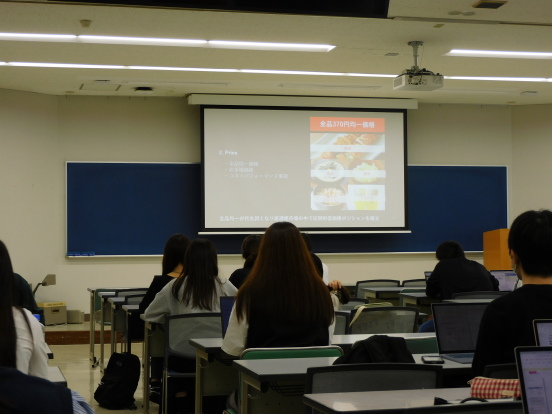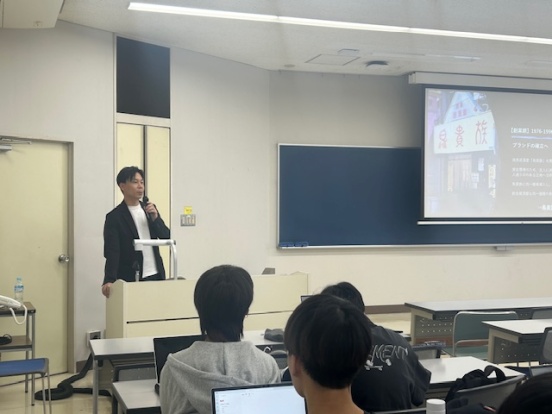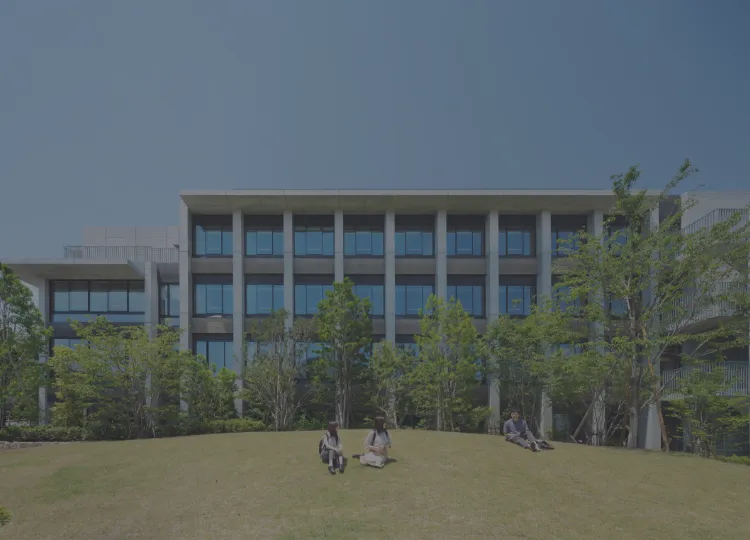
News & Press Releases
[Faculty of Business Administration] On Tuesday, October 21st, we had a lecture on service management from Satoshi Michishita, Executive Officer of Eternal Hospitality Group, which operates Torikizoku and other restaurants.
2025.11.03
- notice
- Faculty of Business Administration
Assistant Professor Mizuyo Tonoshima of the Faculty of Faculty of Business Administration teaches "Service Management," inviting guest speakers from the business world, including those involved in the restaurant and entertainment industries, to deepen students' understanding by listening to specific examples and the voices of those involved. For the first lecture, Satoshi Michishita, Executive Officer of Eternal Hospitality Group Co., Ltd., which operates the Torikizoku izakaya chain, spoke about the group's past and future developments.
Eternal Hospitality Group Co., Ltd. is a company whose core business is Torikizoku, which was founded about 40 years ago by its founder, President Okura, who opened the first store in Higashi-Osaka. He changed the image of the yakitori restaurant from "a place frequented by older men" to "a place that is easy for women and young people to visit" by making improvements such as improving the interior design and setting uniform prices for all items, and has since grown to a scale of over 1,000 stores, including group company Yakitori Daikichi.
Executive Officer Michishita explained that despite the fierce competition in the restaurant industry, where it is generally said that 70% of businesses go out of business within three years and 80% within five years, the source of the company's continued growth over the past 40 years has been the cherishing of company ties, the words and leadership of President Okura, who said, "We will brighten the world with yakitori," and the fact that he has instilled within the group the joy of the restaurant business. This means that the company is supported by the high level of loyalty of its store staff, which is difficult to imitate.
Next, he spoke about turning points in the group's 40-year growth. The first was the opening of a new store in the Dotonbori skyscraper (a restaurant building). Contrary to initial expectations, opening a new store in this location overturned Torikizoku's image, marking the start of a rapid growth and accelerating the pace of new store openings. The second was after listing on the Tokyo Stock Exchange's JASDAQ (later moved to the Second and First Sections) in 2014. After consistently opening approximately 80 new stores per year, performance began to show signs of decline, prompting a review of the store opening strategy. While new store openings expanded the area, the analysis revealed that brand recognition had not been successful. The company introduced a marketing and profit management system and changed its revenue structure. The effect of this change can be seen in the company's transformation from a loss-making closure and store closure due to COVID-19 to record profits.
From 2024 onwards, the company plans to begin global expansion, primarily in Asia, including the US, Taiwan, and South Korea, and is also opening luxury restaurants. The company is also working towards sustainability, signing an agreement with ENEOS to use SAF as a raw material and promoting take-out yakitori through the introduction of "mottECO." By 2030, the company aims to have over 2,000 stores worldwide, making the world a brighter place with its yakitori restaurants.
After the lecture, students commented, "The attitude of not just pursuing profits but valuing people, society, and the environment is extremely important in corporate management going forward, and I believe Torikizoku, which embodies this and continues to grow, is a model for the food and beverage industry," and "I thought it was wonderful that they have built a company that is among the top in the industry while thoroughly adhering to 'cheap, safe, and made in Japan'."
<Source: School Public Relations>
